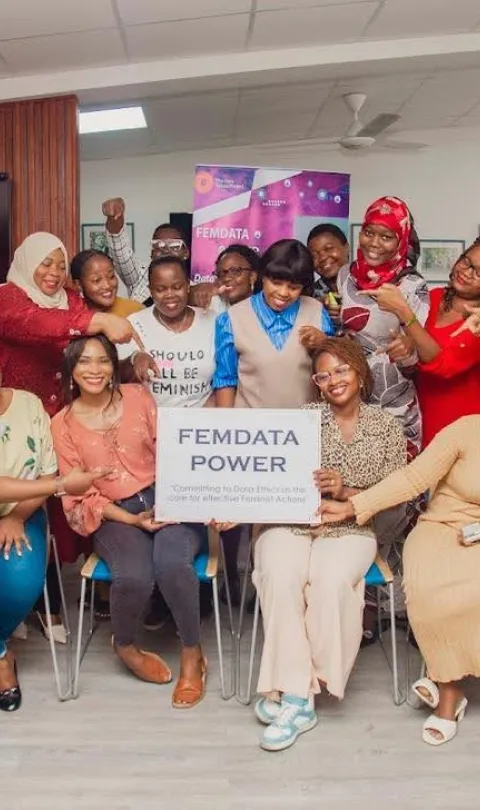In an increasingly digital world, data privacy and protection have become fundamental rights, yet many vulnerable groups remain at risk due to inadequate safeguards. As a Data Values Advocate in our second cohort, Navina Mutabazi has been working with feminist-led organizations in Tanzania to strengthen their data processes and empower women and girls to navigate digital spaces safely.
The problem
In Tanzania, women, youth, children, and people with disabilities are disproportionately affected by weak data protection policies and a lack of awareness about their data rights. While the Tanzania Personal Data Protection Act (Act No. 11 of 2022) was enacted to regulate data collection and processing, there has been little evaluation of its implementation at the grassroots level, leaving critical gaps in enforcement. Additionally, Tanzania’s Cybercrimes Act of 2015, which aims to address online security threats, has been criticized for its broad and sometimes restrictive application, failing to fully address ethical data governance for advocacy groups and civil society organizations.
Globally, 90 percent of internet users are concerned about their online privacy, yet only 24 percent feel in control of how their data is used (World Economic Forum, 2022). In sub-Saharan Africa, an estimated 57 percent of organizations lack adequate data protection frameworks (UNCTAD, 2023), which exacerbates the risk of data exploitation, especially for marginalized communities.
In January 2024, a needs assessment conducted within a network of 120 grassroots feminist-led organizations in Tanzania further exposed the severity of the issue. The assessment revealed that over 75 percent of feminist grassroot organizations lacked formal data privacy and protection mechanisms, leaving sensitive beneficiary information—particularly that of women, young girls, people with disabilities, and children—at risk of unauthorized use, exposure, or exploitation.
Many of these organizations collect significant amounts of data, yet low levels of knowledge on ethical data practices among both the organizations and their beneficiaries continue to exacerbate the risk of data breaches and unethical data handling. Without proper governance structures in place, feminist organizations are unable to fully protect the dignity, privacy, and security of the marginalized communities they serve.
The approach
As a Data Values Advocate, Navina recognized an urgent gap in data privacy, security, and ethical governance within grassroots feminist organizations in Tanzania. To bridge this gap, she co-created and launched the FemData Power Project, leveraging her network, Dadas Rise Coalition, to mobilize 25 feminist-led organizations for an interactive, solution-driven workshop in Dar es Salaam.
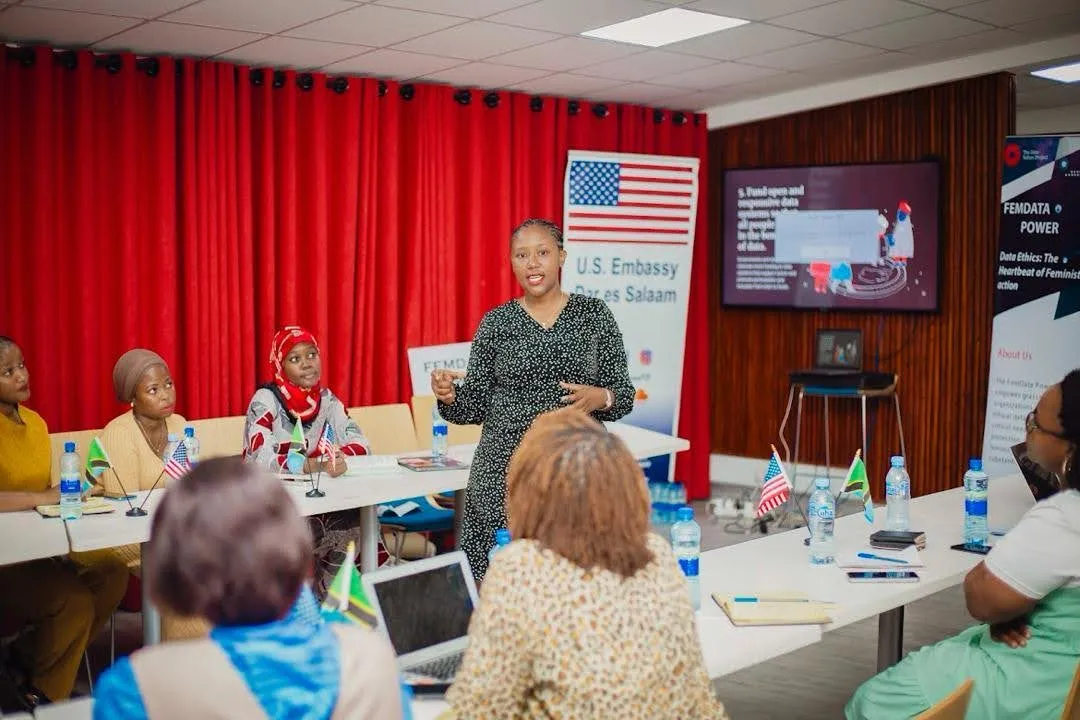
At the heart of the workshop was the Data Values Manifesto, a global framework for fair, transparent, and people-centered data governance. Through engaging discussions, they explored its core principles, including:
- Put people at the center of data systems: Data should work for people, not against them. Feminist organizations must ensure that beneficiaries have control over their personal data and understand how it is used.
- Invest in equity and inclusion in data governance: Feminist groups must challenge power imbalances in data collection, ensuring that marginalized voices shape the policies that impact them.
- Strengthen accountability in data use: Organizations must establish clear safeguards to prevent data misuse, breaches, and harmful data repurposing.
Beyond principles, the workshop was deeply practical and interactive. One of the most powerful moments came during a panel discussion featuring LP Digital, one of Tanzania’s most data-ethically driven feminist organizations. Their representative shared how they use human-centered design to ensure that data is not just collected and stored but actively builds a safer future, especially for women and young girls.
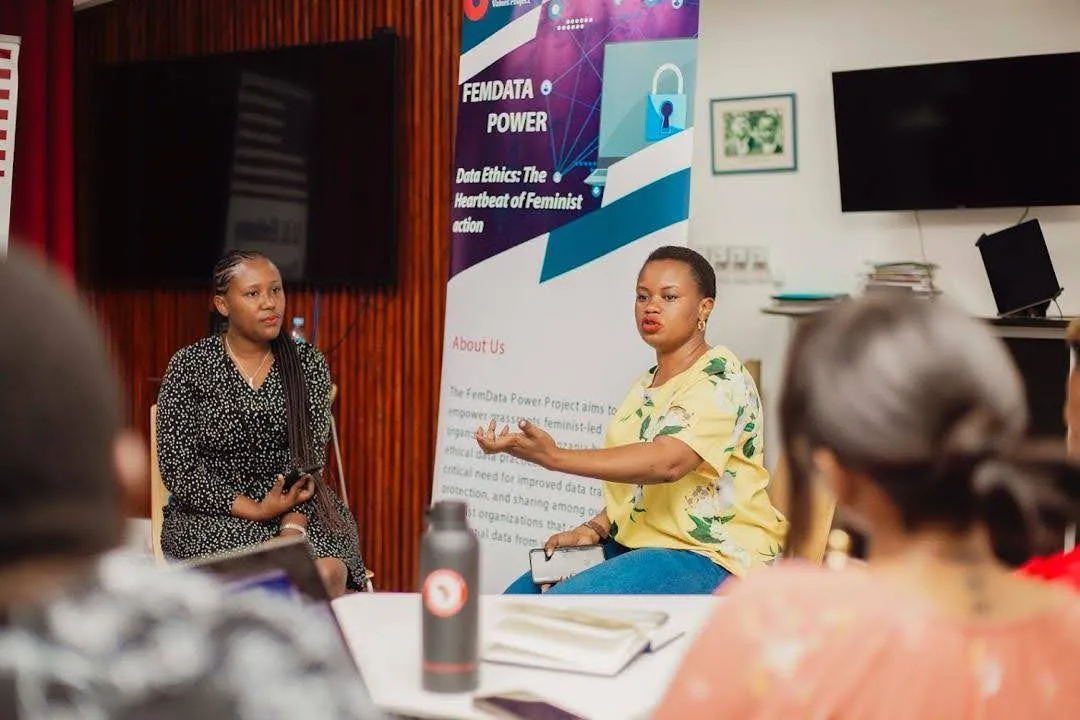
This approach ensures that data systems are not extractive but instead work to empower communities and protect their dignity. This experience also helped participants reflect on how they can help marginalized groups have a say and power in their own data, from how it's collected, to how it's used, disseminated, and managed.
In addition, the FemData Power workshop engaged in “Building Data Decks Challenges” to bridge the gap between theory and practice. These were hands-on exercises, designed to translate ethical data principles into actionable solutions. Such challenges included:
- How to secure survivor data in gender-based violence cases.
- How to ensure that young girls in early marriages understand and consent to data collection.
- How to push back when donors demand sensitive personal information.
By the end of the session, participants were not just talking about data ethics but they also deep-dived into solving real-life challenges of data ethics within their organizations. This overall experience prompted them to shift the narrative and practices of how they are handling data of vulnerable groups at risk of data misuse/breaches or threats from those in power.
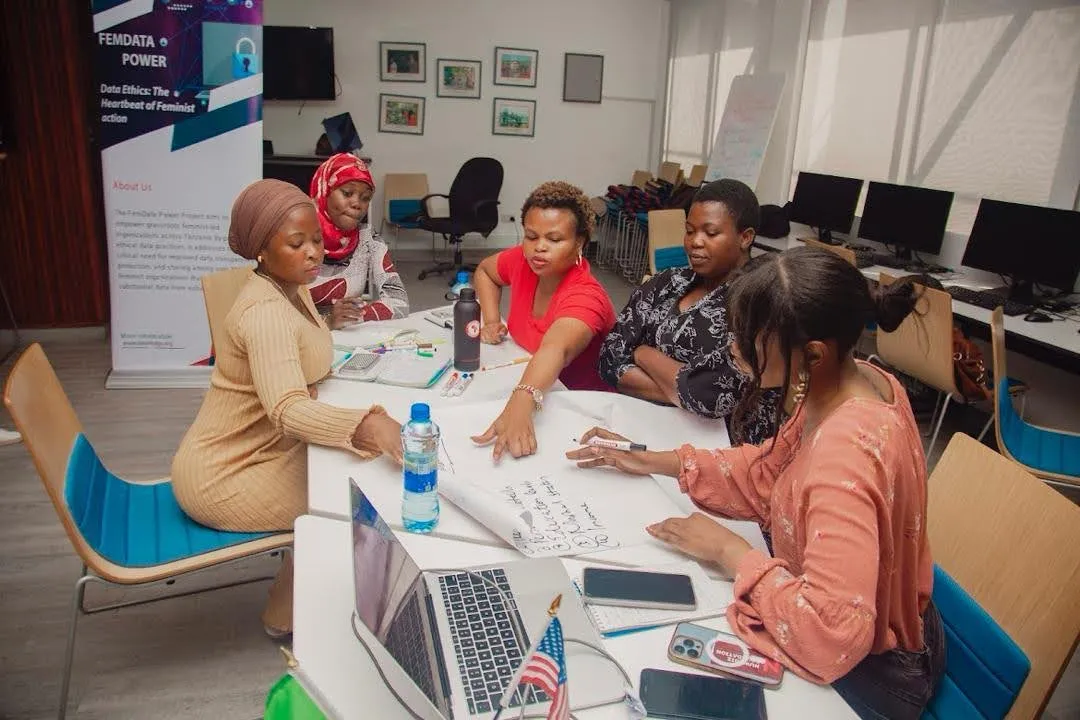
Outcomes and results
The FemData Power Project is already reshaping how grassroots feminist organizations in Tanzania handle data privacy. Since the workshop, 65 percent of participants have begun developing internal data governance frameworks, strengthening security, consent policies, and legal alignment. In addition, 60 feminists and grassroot women-led founders signed the Data Values Manifesto, committing to ethical data practices that protect vulnerable communities they engage with. This commitment in itself poses a step towards achieving a fairer data future while upholding human rights and dignity for vulnerable groups.
The impact extends beyond organizations. Just a month later, five participants took the conversation national, speaking at Tanzania ICT Day and Tanzania Data Privacy and Protection Day. They challenged gaps in the country’s data laws, highlighting the need for stronger protections for women, young girls, and marginalized groups. This marks the start of a feminist-led movement to push for more inclusive data governance in Tanzania even at grassroot levels.
Challenges and lessons
- Feminist movement building can help to address complex issues like data privacy and protection.
One of the strongest takeaways from the FemData Power Project was the potential of feminist movement-building in tackling seemingly technical and complex issues like data privacy and protection. Often, these topics are viewed as too specialized or regulatory for grassroots organizations to meaningfully contribute to. However, the workshop demonstrated that feminist-led organizations are not only capable but are already at the forefront of navigating ethical data challenges, such as handling survivor data in gender-based violence cases or ensuring consent in reproductive health programs (critical and sensitive areas of their work).
By bringing together 25 grassroots feminist organizations, FemData Power demonstrated how collective engagement and shared learning can break down technical barriers and create a movement where ethical data governance becomes an integral part of feminist advocacy.
2. Co-creation leads to greater engagement and ownership.
The success of FemData Power was largely due to its co-creation approach, which allowed grassroots feminist-led organizations to fully participate in, contribute to, and shape discussions. Instead of a top-down model where organizations were simply trained on data ethics, they were actively involved in designing solutions to their own data challenges. The Building Data Decks Challenge was a prime example—participants didn’t just learn theory, they worked through real-world dilemmas, applied feminist values to their decision-making, and co-created ethical data strategies that were practical for their work. This participatory model ensured that organizations didn’t just attend a workshop—they left with strategies they could immediately implement.
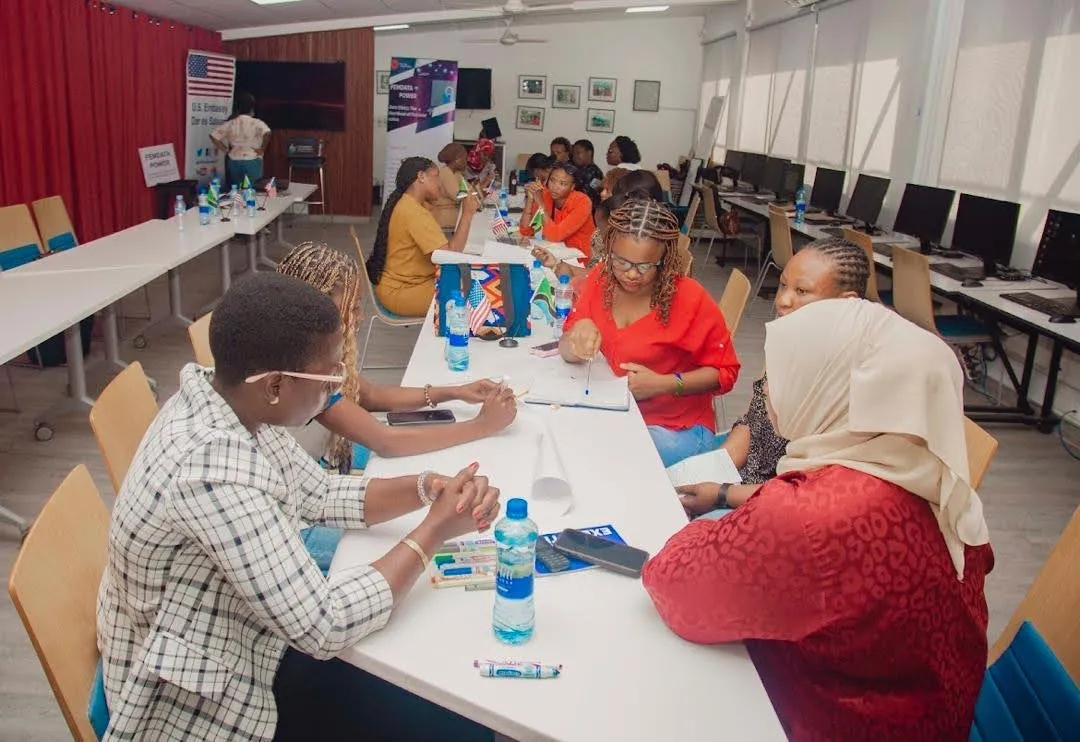
3. Data gatekeeping remains a major barrier to achieving a fairer data future.
A critical challenge raised during the workshop was the issue of data gatekeeping, where community leaders, family members, or decision-makers control access to sensitive information about vulnerable groups, including women experiencing infertility, survivors of gender-based violence, and those facing economic hardship. Over 75 percent of participants voiced concerns that these gatekeepers either block access to critical data needed for advocacy or mishandle private information without proper consent. This discussion highlighted the need for more community-level dialogues on ethical data governance, ensuring that vulnerable groups have a say in how their information is collected, used, and shared. Without addressing data gatekeeping, even the best privacy policies and ethical commitments risk being undermined at the community level.
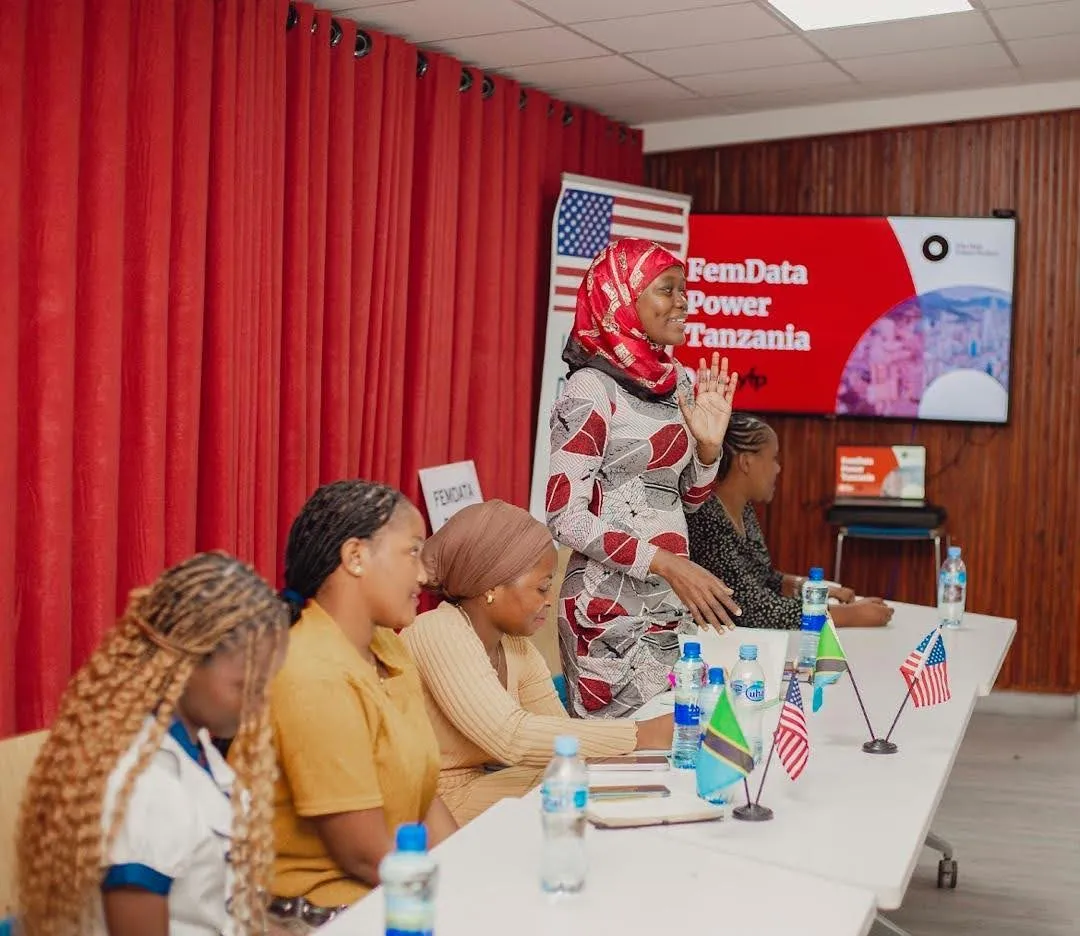
4. Continuous investment in data governance education is critical.
While the workshop was a strong first step, another key lesson was that understanding ethical data governance is a continuous learning process. Some participants struggled with foundational data governance concepts, highlighting the widespread lack of access to training on data privacy, protection, and security within feminist movements. The FemData Power Project showed that grassroots organizations want to engage in ethical data discussions but need more consistent access to knowledge and mentorship. This makes a strong case for long-term investment in capacity-building programs, mentorship initiatives, and the localization of global frameworks like the Data Values Manifesto to ensure they resonate with grassroots realities.
5. Localization of data ethics is key for meaningful impact.
One of the most important lessons from FemData Power was that global data governance frameworks need to be adapted to local feminist movements. The Data Values Manifesto provided a strong foundation, but through discussions, participants explored how to contextualize these principles to fit Tanzania’s legal, cultural, and feminist landscapes. The workshop reinforced that data ethics is not a one-size-fits-all concept—it must be grounded in local realities, community needs, and feminist values.
Next steps
Looking ahead, FemData Power aims to expand its reach to over 100 grassroots feminist-led organizations by equipping them with practical skills on secure data collection, storage, and consent-driven governance. In the long run, this will also drive alignment with both national and global regulatory frameworks, including Tanzania’s Personal Data Protection Act (2022), the Cybercrimes Act (2015), and the Data Values Manifesto.
A key outcome will be the adoption of stronger internal policies that prioritize the dignity, privacy, and security of marginalized groups, particularly women, girls, and youth. Progress will be measured through the number of organizations implementing secure data practices, policy adoption rates, and engagement in data advocacy.
Through FemData Power, feminist and grassroots organizations will be taking the lead in ensuring that data protection, privacy, and accountability become fundamental pillars of advocacy and social justice in Tanzania.
How you can get involved
The FemData Power Project has demonstrated that data privacy, protection, and ethical governance are not just technical concerns, they are fundamental feminist issues. As grassroots feminist organizations continue to work with marginalized communities on critical issues such as gender-based violence, reproductive health, and economic empowerment, the need for strong, feminist-led data governance frameworks has never been more urgent.
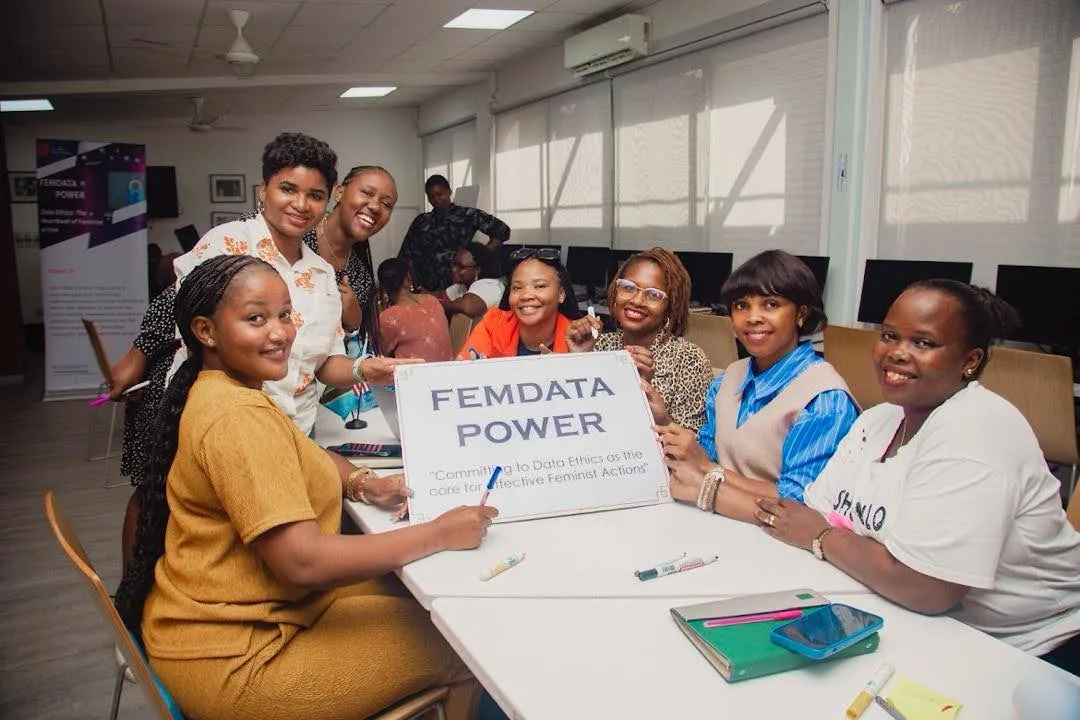
This is how everyone can contribute towards an ethical and fairer data future:
If you are a feminist organization or activist: take proactive steps to integrate ethical data practices into your work. Ensure that informed consent is meaningful, beneficiary data is secure, and that communities have agency over their information.
If you are a policymaker: engage with grassroots movements to co-create data governance policies that prioritize privacy, security, and human rights. Advocate for regular evaluations of data protection laws to ensure they address the evolving challenges faced by marginalized groups.
If you are a donor or development partner: support privacy-conscious reporting mechanisms that balance transparency with the protection of sensitive data. Shift funding priorities to include investments in ethical data capacity building for grassroots organizations.
If you are a technologist or data expert: collaborate with feminist-led initiatives to design people-centered data systems that respect privacy, security, and community ownership of information.
The conversation on data privacy and protection cannot remain within policy circles and regulatory frameworks only; it must be rooted in the realities of those most impacted. The FemData Power Project is only the beginning of a larger movement for ethical data governance and a fairer data future for feminist grassroot-led advocacy in Tanzania and beyond.
